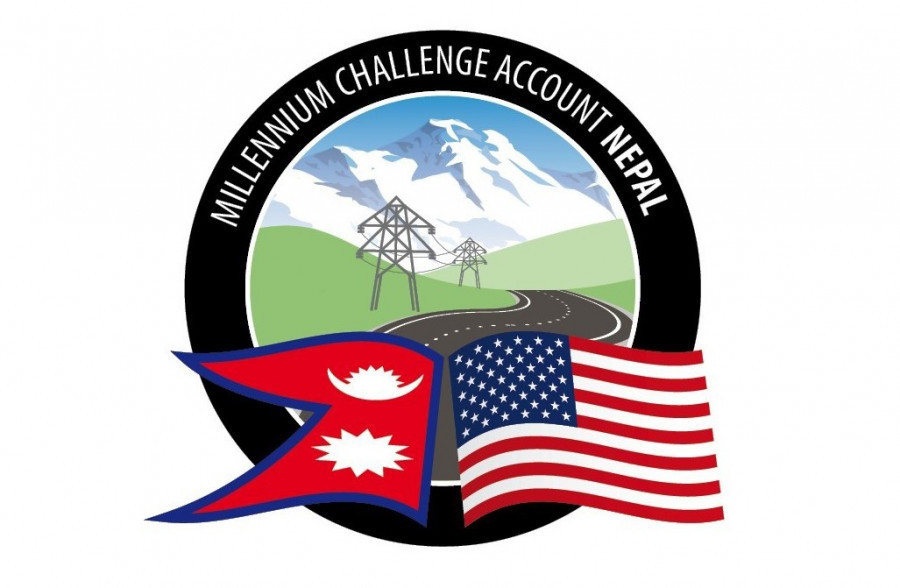
The Parliament meeting scheduled for Thursday has been postponed to Thursday until Friday, as the government sought to ensure the required numbers to pass the Millenium Challenge Corporation-Nepal Compact from the House.
The compact, under which Nepal is to receive $500 million in grants from the United States, was tabled on Sunday, 32 months after it was registered in Parliament in July 2019.
Thursday’s House meeting was postponed immediately after the Business Advisory Committee decided to include deliberations on the compact on the agenda for the day’s proceedings. Parliament officials said the meeting was called off at the request of Prime Minister Sher Bahadur Deuba, who has been trying to cobble together the required votes to ratify the MCC compact.
Here is a rundown of the complexities.
How many members need to vote in favour of ratifying the compact?
It takes a simple majority—51 percent of the lawmakers present at the time of voting to ratify the compact.
Which are the parties in Parliament and what are their strengths?
The 275-strong Parliament currently has 271 members.
The main opposition CPN-UML is the single largest party with 98 members. However, one of the members (Som Prasad Pandey) is aligned with the CPN (Unified Socialist) although he is technically registered as a UML lawmaker. The governing Nepali Congress has 61 members, as two of its members remain suspended. The Communist Party of Nepal (Maoist Centre) and the Unified Socialist, both coalition partners in the government, have 49 and 23 members, respectively in Parliament. Both these parties are opposed to a parliamentary ratification of the compact.
The Janata Samajbadi Party (19 members), also a key coalition partner, is divided, with a faction led by Baburam Bhattarai, with around 10 members, in favour of ratification and the other group led by Upendra Yadav opposed to the compact.
The Loktantrik Samajbadi Party, which has 13 seats in Parliament, has decided to vote in favour of the compact. Three independent lawmakers represent the Rastriya Janamorcha, the Rastriya Prajatantra Party, and the Nepal Majdoor Kisan Party. All three have decided to vote against the compact.
How will the vote take place?
Although voice vote is what is usually practised, those opposing the compact are demanding proper voting by putting their signatures. In a voice vote, lawmakers say “yea” or “nay” on the motion and the Speaker declares whether the motion has passed or failed depending on the majority of members saying either “yea” or “nay”.
But those opposing the compact are saying if 10 percent of the lawmakers—28 given the current House strength—demand proper voting by putting signatures, the Speaker has to do so.
Here’s where things get tricky.
The Maoist Centre and the Unified Socialist together have 73 votes (including Pandey) and they have said they would vote against the compact.
The Nepali Congress which wants to get the compact ratified has 61 votes. But two of its lawmakers are not in the country, so they will not be available to vote, thereby bringing the Congress party’s number of votes to 59. If the Janata Samajbadi Party’s 10 members and Loktantrik Samjabadi Party’s 13 members extend their support, there will be 82 votes in favour.
The UML has been obstructing House proceedings for the last five months and it has not shown any sign of lifting the obstruction. It has not made its position clear on the MCC compact. It’s not clear if the UML members will be counted as “present” if they continue their protest in the House.
Scene 1:
If the UML is not counted as “present”, the number of present lawmakers will be counted at 167—Congress (59), Maoist Centre (49), Unified Socialist (24), Janata Samajbadi Party (19), Loktantrik Samajbadi Party (13) and independents (3).
To achieve a simple majority, 84 votes are required.
However, Congress, LSP, and 10 members of the JSP command just 82 votes, two short.
Scene 2:
If the UML too is counted as “present” despite their House obstructions, the number of present lawmakers will be counted at 264. In that case, to achieve a simple majority, 133 votes will be required, too big a number for the Congress to achieve.
If the UML votes in favour, there will be a total of 179 votes in favour, more than required to ratify the compact.













